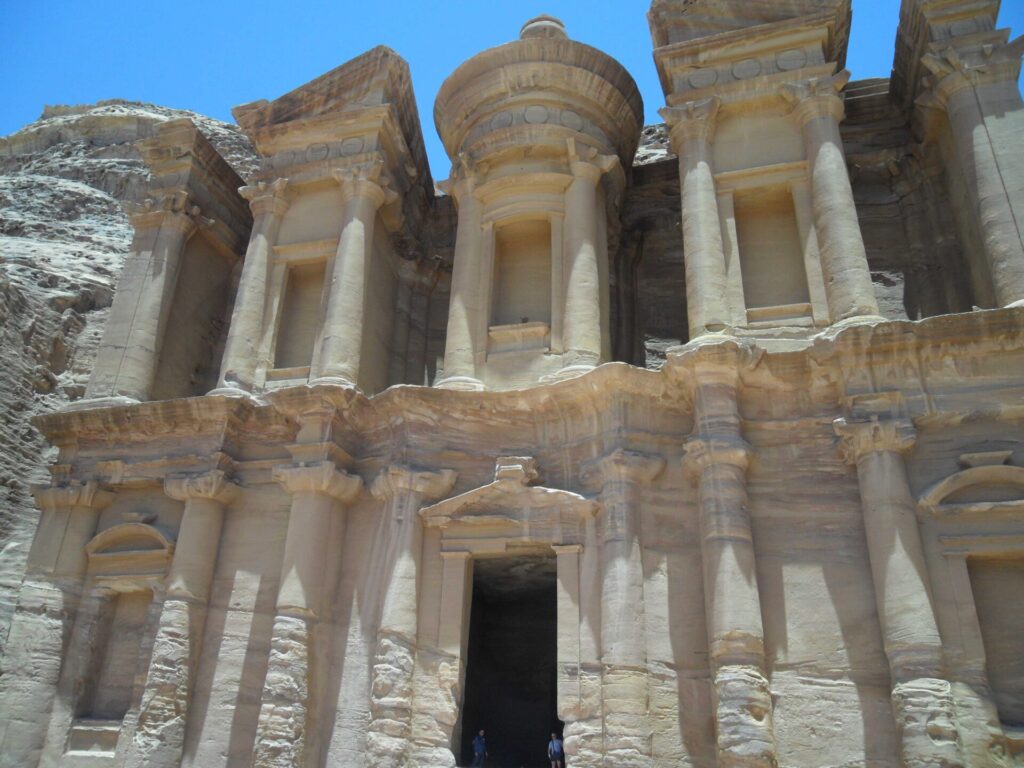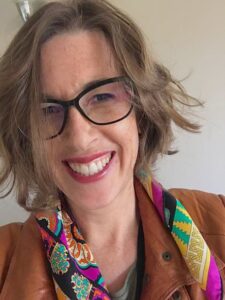 We are thrilled to announce that this year’s Contemporary Levant Best Paper Prize has been awarded to Lynn Meskell (Penn Museum and University of Pennsylvania, Philadelphia) and Christina Luke (Koç University, Istanbul), for their paper entitled: ‘Developing Petra: UNESCO, the World Bank, and America in the desert.’
We are thrilled to announce that this year’s Contemporary Levant Best Paper Prize has been awarded to Lynn Meskell (Penn Museum and University of Pennsylvania, Philadelphia) and Christina Luke (Koç University, Istanbul), for their paper entitled: ‘Developing Petra: UNESCO, the World Bank, and America in the desert.’
The winning article is available now as open access in Contemporary Levant. Here is an abstract of the winning paper:
This article charts the nascent development agendas for archaeological heritage and tourism at Petra in Jordan. We begin with the early internationalism of UNESCO and its participation programme for Petra followed by the restructuring of American foreign policy interests to embed heritage tourism within USAID projects. A technocratic tourism-as-assistance model galvanised USAID and the World Bank’s interest in Petra, as it did the CIA, the American Schools of Oriental Research, the US National Park Service, and Jordan’s Department of Antiquities. Thus, we reveal how saving Petra was underwritten by an increasing American vigilance in the Middle East. Unlike the educational and humanitarian components of the United Nations programme, the USAID and World Bank initiatives at Petra were almost exclusively directed toward tourism development, generating hard-currency revenue, monetising the Nabataean ruins, and sowing the seeds of predatory capitalism. Our longitudinal study reveals that what has been sustained at Petra is not the preservation of heritage, nor support for local communities, but rather an overburden of international bureaucracy and consultancy culture.
The evaluating committee, made up of members of CBRL trustees and Contemporary Levant’s editorial board, commented on the winning paper: “It is elegantly written, cohesive in its structure and displays formidable research skills to make a strong and persuasive political argument about how archaeology has been instrumentalised to support political and economic interests that damage ecological and cultural structures in the region.”
Editor of Contemporary Levant, Sarah Irving (Staffordshire University) commented: “I’m delighted to be publishing this article as Contemporary Levant’s prize-winner this year, touching as it does on many live debates about the roles of European and American scholarship, policy and politics in the Levant and its heritage. I think this article pairs beautifully with our 2019 prize winner, “Prejudice, military intelligence, and neoliberalism: examining the local within archaeology and heritage practices in Jordan,” by Shatha Abu-Khafajah and Riham Miqdadi in terms of its implications for thinking about academic impacts and ethics. As a comparatively new and growing journal with a particular interest in supporting new scholars and those based in and from the region, it’s great to be able to help to promote work with this kind of relevance and engagement.”
 Lynn Meskell is Penn Integrates Knowledge (PIK) Professor at the University of Pennsylvania. She is Richard D. Green Professor of Anthropology, Professor in the Graduate Program in Historic Preservation at the Weitzman School of Design, and curator in the Middle East and Asia sections at the Penn Museum. Currently she serves as AD White Professor-at-Large at Cornell University (2019-2025). She holds Honorary Professorships in the UK, India, and South Africa. She is a Fellow of the Australian Academy of the Humanities. Lynn has conducted an institutional ethnography of UNESCO World Heritage, tracing the politics of governance and sovereignty and the subsequent implications for multilateral diplomacy, international conservation, and heritage rights. Employing archival and ethnographic analysis, her award-winning book A Future in Ruins: UNESCO, World Heritage, and the Dream of Peace reveals UNESCO’s early forays into a one-world archaeology and its later commitments to global heritage.
Lynn Meskell is Penn Integrates Knowledge (PIK) Professor at the University of Pennsylvania. She is Richard D. Green Professor of Anthropology, Professor in the Graduate Program in Historic Preservation at the Weitzman School of Design, and curator in the Middle East and Asia sections at the Penn Museum. Currently she serves as AD White Professor-at-Large at Cornell University (2019-2025). She holds Honorary Professorships in the UK, India, and South Africa. She is a Fellow of the Australian Academy of the Humanities. Lynn has conducted an institutional ethnography of UNESCO World Heritage, tracing the politics of governance and sovereignty and the subsequent implications for multilateral diplomacy, international conservation, and heritage rights. Employing archival and ethnographic analysis, her award-winning book A Future in Ruins: UNESCO, World Heritage, and the Dream of Peace reveals UNESCO’s early forays into a one-world archaeology and its later commitments to global heritage.
 Christina Luke is Associate Professor of Archaeology and History of Art at Koç University in Istanbul, Turkey. She’s conducted archaeological and ethnographic fieldwork in Central America, Mexico, the Balkans, and Turkey. Her professional background includes the US Department of State as well as training programmes with the governments of Egypt, Jordan, Syria, Iraq, Serbia, Montenegro, and Turkey. Her research has been funded by the US National Endowment for the Humanities, US National Science Foundation, British Cultural Protection Fund, and the UK Arts & Humanities Research Council. Her current projects focus on food and society, Ottoman conservation policies, and the historiography of archaeology and preservation in the Middle East, North Africa and Turkey. This work grew from journal articles and her 2019 book, A Pearl in Peril: Heritage and Diplomacy in Turkey (Oxford University Press). She also serves as Editor for the Journal of Field Archaeology.
Christina Luke is Associate Professor of Archaeology and History of Art at Koç University in Istanbul, Turkey. She’s conducted archaeological and ethnographic fieldwork in Central America, Mexico, the Balkans, and Turkey. Her professional background includes the US Department of State as well as training programmes with the governments of Egypt, Jordan, Syria, Iraq, Serbia, Montenegro, and Turkey. Her research has been funded by the US National Endowment for the Humanities, US National Science Foundation, British Cultural Protection Fund, and the UK Arts & Humanities Research Council. Her current projects focus on food and society, Ottoman conservation policies, and the historiography of archaeology and preservation in the Middle East, North Africa and Turkey. This work grew from journal articles and her 2019 book, A Pearl in Peril: Heritage and Diplomacy in Turkey (Oxford University Press). She also serves as Editor for the Journal of Field Archaeology.
Contemporary Levant is a peer-reviewed, multi-disciplinary journal that aims to foster research on contemporary politics, society and culture in the Levant region, its diasporas and neighbouring countries. The journal seeks to maintain a balance between empirical research and theoretical developments.
To find out more about submitting your work, please visit www.tandfonline.com/ycol. You can subscribe to Contemporary Levant through university library subscriptions and by becoming a member of CBRL.














